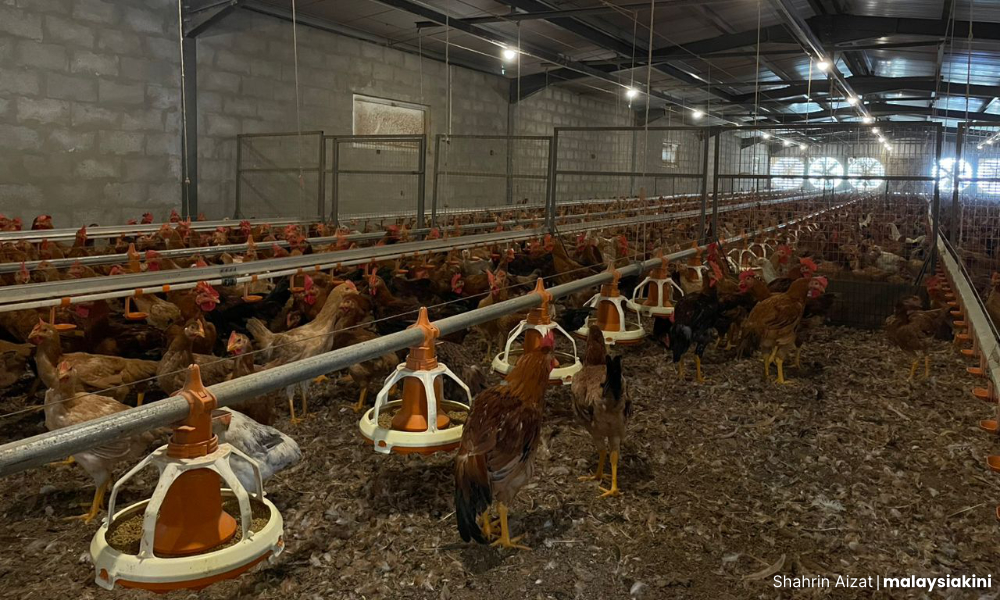SG BAKAP BY-ELECTION | The fly infestation affecting several areas in Sungai Bakap, Penang, is caused by large-scale farmers, said Penang Veterinary Services Department director Dr Saira Banu Mohamed Rejab.
She also said the problem worsens during harvesting season – when some 100,000 livestock are culled at a time, contributing to the infestation, especially after the cleaning process.
“I think this seasonal fly problem isn’t from small-scale farmers but mostly from large-scale farmers, especially when they’re harvesting, that is, when the chickens have reached the age to be sold.
“When they’re catching the chickens to be loaded onto trucks, they usually spray water, so it (chicken manure) becomes wet. That’s one of the causes of the fly infestation,” she said during a press conference today at a farm in Sungai Bakap.
Previously, Malaysiakini reported that residents in the area had been complaining about a fly infestation, which was said to be closely tied to weather conditions and the harvesting cycles of farmers within the locality.
The state veterinary department said Sungai Bakap hosts the highest concentration of farms in Penang, with at least 115 registered farms, primarily consisting of chicken and duck operations.

However, this number may not represent the full scale of farming activities in the area.
Farming regulations
Saira emphasised that the state government has implemented strict guidelines for farm operations.
To qualify for a licence, farmers must have a minimum of 10,000 livestock.
The regulation, she added, is outlined in the Penang Poultry Farming Enactment 2020 and Poultry Farming Regulations 2022 - which came into effect on Jan 1.
Asked about how regularly the department monitors the farms, Saira replied that her team acts based on reports lodged.
“We haven’t reached the stage of asking them to close their farms because they need to earn a living too.
“As long as they farm in an area somewhat far from residents or housing, and they ensure spraying or the use of EM (effective microorganisms), and the maintained area doesn’t have stagnant areas or wet manure that can cause fly problems,” she said.
Small farms
Queried on whether the department has identified small-scale farmers who might not be complying with regulations, Saira said she does not have information on this yet.
However, she said small-scale farmers were advised to adopt the enclosed farming system but acknowledged they might not be able to afford it.
“If it’s under 10,000 livestock, asking them to build an enclosed farmhouse is not really suitable as the cost to build the system might run into the millions.
“That’s why we advise them to focus on regular maintenance,” Saira added.
Previously, state executive councillor (Agrotechnology, Food Security, and Cooperative Development) Fahmi Zainol said the Penang government plans to revolutionise farming and address issues like fly infestations.
He highlighted Penang’s pioneering role in mandating enclosed farming systems.
“We’re looking at a timeline of one to two months for pig farms and about two years for poultry farms to transition,” he said, adding the state aims to have all farms converted to enclosed systems by 2026. - Mkini

